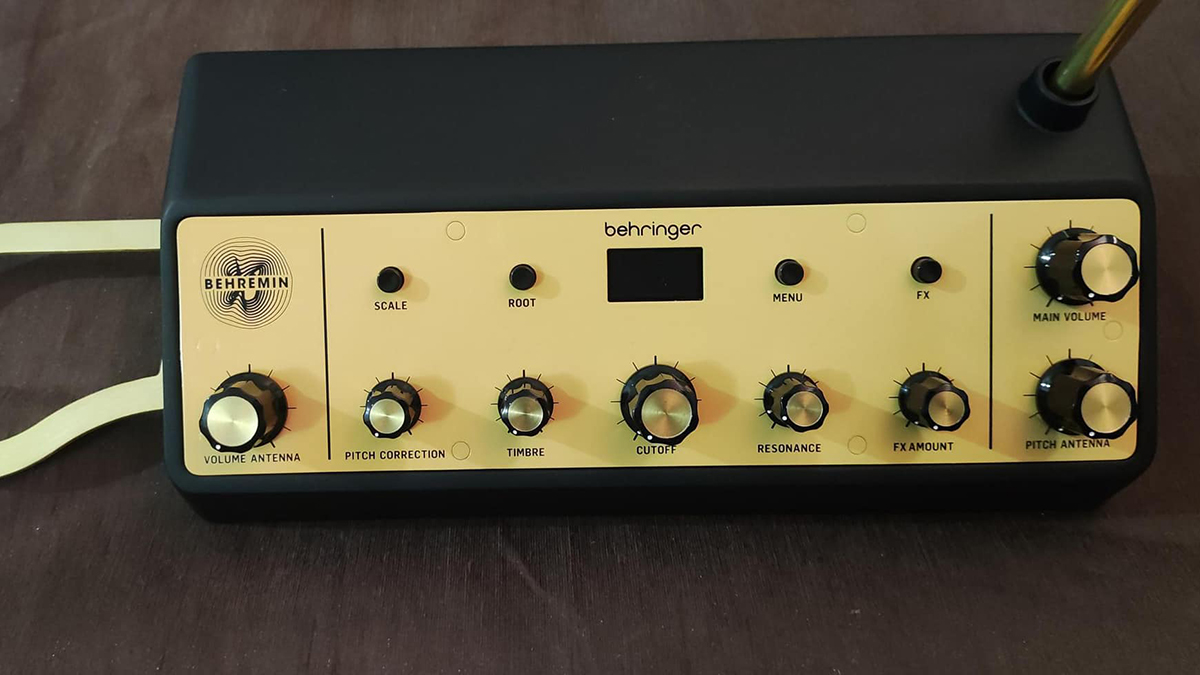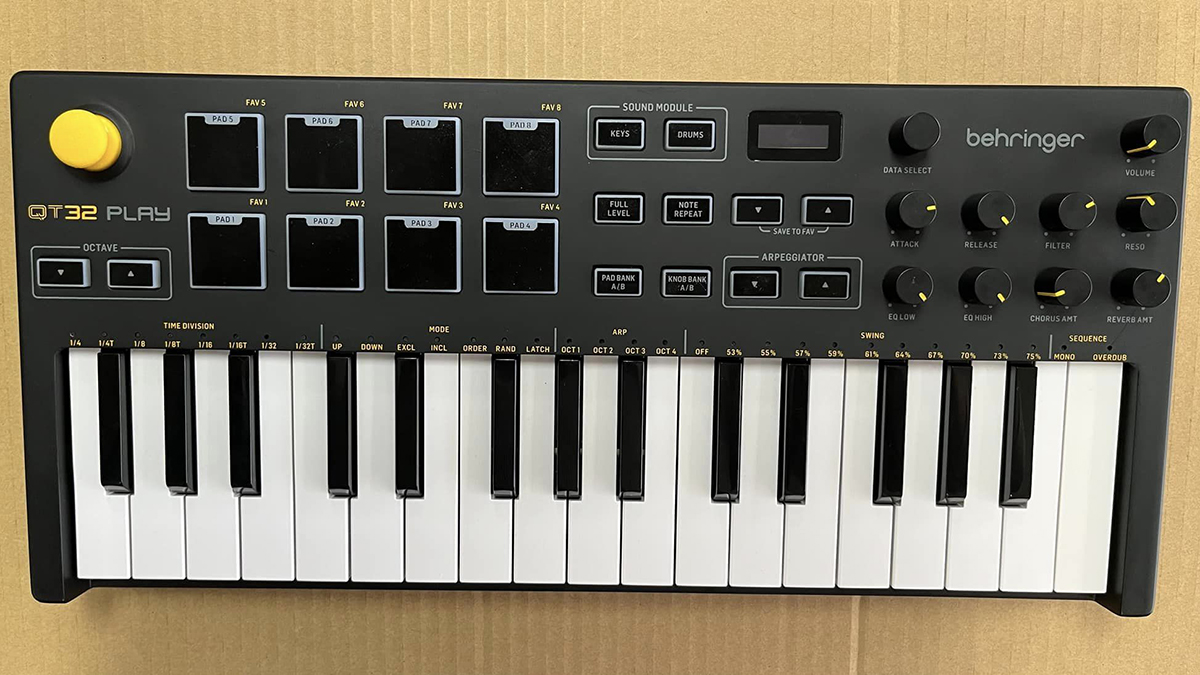Should Behringer release the Behremin, its $99 Theremin “interpretation”, or should it keep its hands off?
Company shows prototype and teases the QT32, a compact MIDI keyboard with built-in sounds

Want all the hottest music and gear news, reviews, deals, features and more, direct to your inbox? Sign up here.
You are now subscribed
Your newsletter sign-up was successful
Behringer’s classic synth clones have encouraged a lot of people to invest in hardware and get a bit more hands-on with their music-making, but now the company is releasing an “interpretation” of another famous instrument that you'll be able to play with your hands off. Yep, a Behringer Theremin is incoming - the Behremin, obviously - and it looks as retro as you’d expect.
The Behremin has controls for pitch correction and timbre, along with cutoff and resonance knobs to tweak the filter. There are effects, too, and we’re promised both CV and MIDI connectivity.
The photo released on Facebook is of the first Behremin prototype, so the design may change before launch. When that launch will be remains to be seen - Behringer says that it will now begin developing the software for the instrument, so it could be a while yet. The price is expected to be $99.

In other Behringer news (there's always some), the company has also unveiled the QT32, a 32-note MIDI controller that contains 127 sounds and some drum kits so that it can be used standalone. In this respect it calls to mind Akai’s MPK Mini Play, another compact MIDI keyboard with built-in tones, but has the advantage of a slightly larger keyboard.
Again, this is in prototype, but Behringer says it will build and release the QT32 if there’s enough interest. Projected price here is $129.
Finally, it’s been confirmed that Toro, Behringer’s desktop Moog Taurus-inspired synth, is now shipping. This one costs $249.
Want all the hottest music and gear news, reviews, deals, features and more, direct to your inbox? Sign up here.



I’m the Deputy Editor of MusicRadar, having worked on the site since its launch in 2007. I previously spent eight years working on our sister magazine, Computer Music. I’ve been playing the piano, gigging in bands and failing to finish tracks at home for more than 30 years, 24 of which I’ve also spent writing about music and the ever-changing technology used to make it.